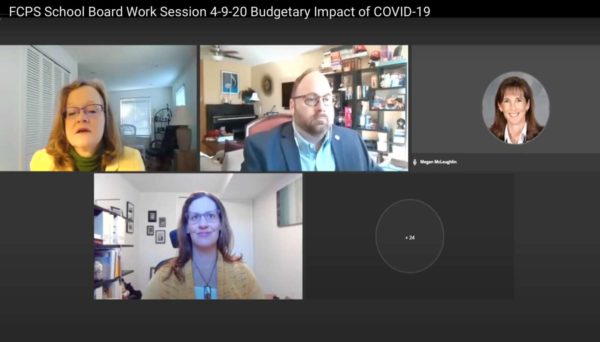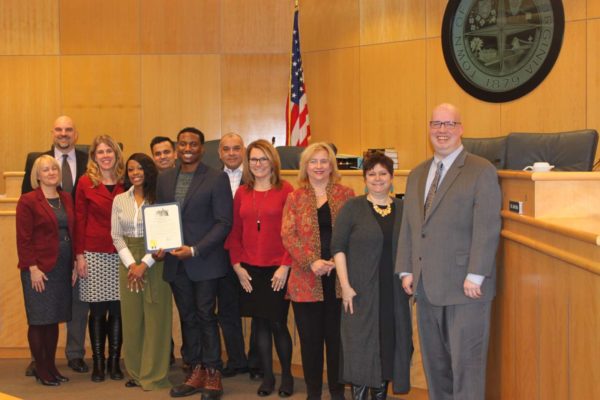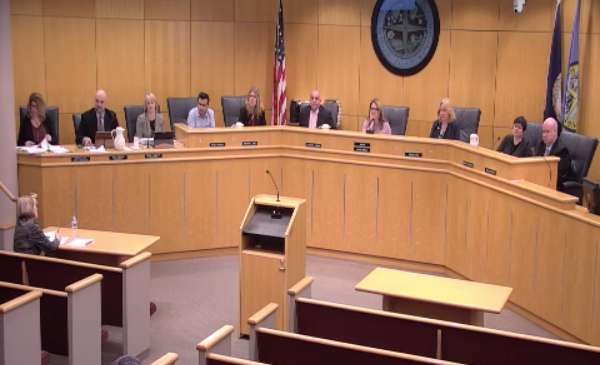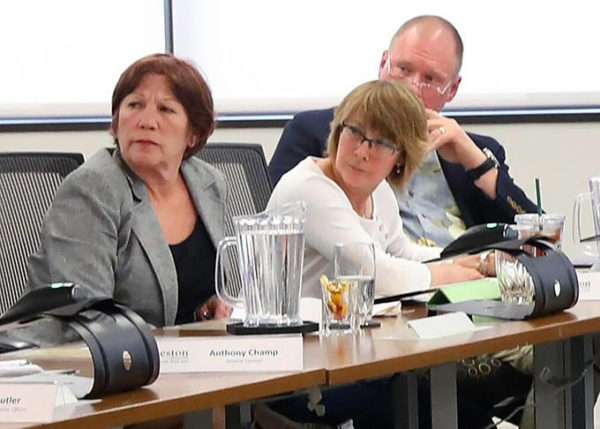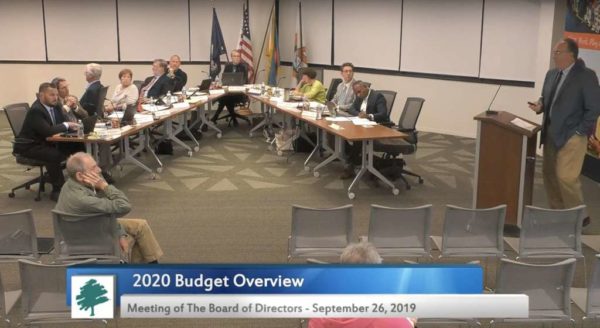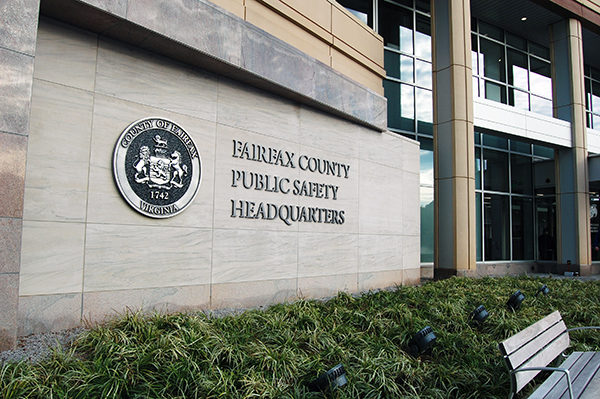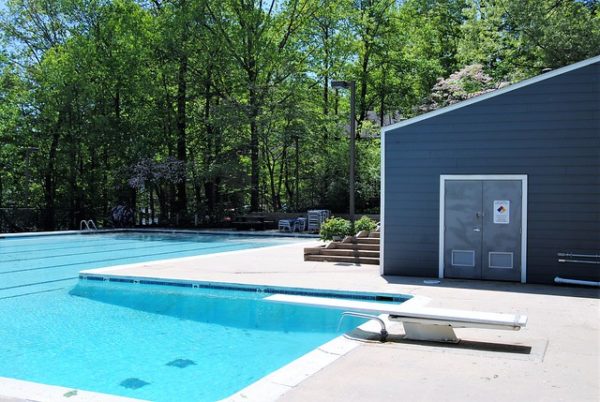Search Results for "budget"
As the coronavirus pandemic creates turmoil for the fiscal year 2021 budget considerations, Fairfax County Public Schools aims to mirror Fairfax County’s budget revision approach.
The Fairfax County School Board tackled changes to the FCPS budget during its meeting yesterday.
Marty Smith, the chief operating officer for FCPS, shared in a presentation that Superintendent Scott Brabrand is looking to mirror the reduction strategy being used for the county’s budget.
The presentation also noted that FCPS aims to maintain its existing staff, but will defer compensation increases to fiscal year 2022. Amendments and new strategic investments will also be pushed.
Extended Pay For Some Substitute Teachers
The school board also unanimously approved a motion that continues pay for part-time, temporary, hourly employees through April 24.
The motion applies to long-term substitute and does not include short-term substitute teachers.
The school board will reconsider pay for those employees when the superintendent provides more information to the board for the meeting on April 16.
At that upcoming meeting, the board will decide pay for the remainder of the school year.
“To Be Determined”
While FCPS is expecting several one time savings, many of the costs associated with the pandemic are still unknown.
So far, all of the financial amounts for categories, like social emotional supports and a COVID-19 second wave contingency plan, listed in FCPS’s “Post COVID-19 Response Plan” are “TBD,” according to the presentation.
Financial impacts related to unemployment and paid leave under the Families First Coronavirus Actare also unknown at this time.
FCPS may also face another, yet-to-be-determined impact: more students.
Brabrand said during the meeting that FCPS must prepare for a possible influx of students.
“It’s a job creation area and we have families in private school who may be financially impacted,” he said.
Image via FCPS/YouTube
Hunter Mill District Supervisor Walter Alcorn is hoping that more resources get allocated to small businesses as Fairfax County officials discuss the revised fiscal year 2021 budget.
Alcorn held a media call this morning (April 9) to discuss dramatic cuts and changes to the changed budget proposal, following a digital public hearing he held last night with residents.
“I’m not happy about the updated budget but it does reflect the reality we’re in right now,” Alcorn said during the media call.
The COVID-19 pandemic caused Fairfax County Executive Bryan Hill to revise suggestions for the upcoming budget, which were integrated into a draft and published on Tuesday (April 7).
Many of the changes include halting the expansion of new projects — focusing instead to retain projects already in progress, according to Alcorn.
“We are going to see some delays on some of our affordable housing projects,” Alcorn said, “It’s disappointing to me because doing more on affordable housing will help the same folks who are being impacted by the Covid emergency… These are some of the same folks who have been laid off.”
Other programs that will likely be delayed are the implementation of body cameras for police officers and a freeze in salary for Fairfax County employees.
“It really is an attempt to put the breaks on anything new,” he said.
Alcorn said he also wants to see relief programs for small businesses in Fairfax County, which may happen.
Next Tuesday, the Board of supervisors will discuss a micro-loan program for local business owners impacted by the pandemic, Alcorn said.
The Budget Committee spoke last week about the potential for the program to offer up roughly $1 million for small businesses, but Alcorn suggested this number was meant to be a “place holder” until there was an opportunity for further discussion.
The Fairfax County Board of Supervisors is set to vote on the final adjusted budget during the May 12 meeting, which was later than previously suggested in Fairfax County documents.
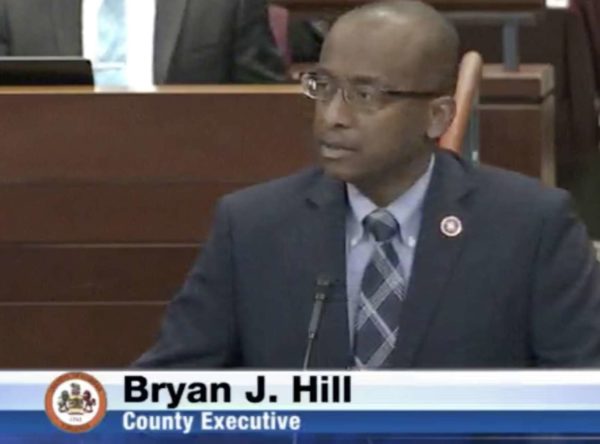
Fairfax County Executive Bryan Hill is pitching major revisions to his budget proposal for fiscal year 2021 in response to the COVID-19 pandemic.
The revised budget, which was released yesterday evening, eliminates a proposed three-cent tax rate increase and fee increases across-the-board in order to relieve pressure on the county’s taxpayers. Hill’s proposal also shifts spending to essential services only and removes all salary increases.
No net increase in the county’s revenues is expected.
The proposal maintains funding increases for the county’s health department the school’s health programs, as well as coordination for programs for those with developmental disabilities, and IT infrastructure for the November elections.
Roughly $9.6 million will be set aside in reserve funds to address the pandemic, in addition to eight new positions in the health department to address the county’s response.
“Protecting the jobs and current pay levels of the county’s existing employees continues to be of utmost importance as we progress through these challenging times,” Hill wrote in a letter to the Fairfax County Board of Supervisors.
Hill cautioned that uncertainty about the extent of the economic downtown complicates the budget process.
“At this time, we are unsure how long the current economic downturn will last as we do not yet know how long it will take for our country to begin to control the spread of the COVID-19 virus.”
The county expects next year’s general fund revenues will rest at the 2020 level of $4.5 billion. This estimate assumes that the health crisis is over by July and that gradual recovery prompts the resumption of economic activity, according to the county.
Major hits to revenue streams like the sales tax, transit occupancy tax, and business occupancy tax are also expected. These losses are expected to offset an expected real estate tax revenue increase of 3.7 percent or $107.4 million. Hill said it was unlikely the state would be able to absorb the impact of revenue losses without adjusting allocations to local jurisdictions.
Here’s how revenue streams could be impacted:
- Personal property tax: Decrease of $9.5 million or 1.5 percent
- Sales tax: Decrease of $26.7 million or 13.5 percent
- Transient occupancy tax: Decrease of $7 million or 30 percent
- Business, professional and occupational licenses: Decrease of $17.2 million or 10 percent
- Land development services building and inspection fees: Decrease of $4.2 million or 10 percent
- Interest on investments: Decrease of $36.7 million or 62.6 percent
Fairfax County Public Schools will receive 0.3 percent more than last year’s budget, a fraction of the previously proposed 3.65 percent increase.
Residents can provide testimony on the budget via video, phone or online for upcoming budget hearings, which are rescheduled to April 28-30. The county board is expected to adopt the budget on May 12, after a mark-up meeting on May 5.
“As Fairfax County finds itself in a different reality, we will need to think about changes that may be necessary to maintain our premier status. Our future may be leaner, and will certainly be more efficient, as we use different tools to provide the services that are needed for our community,” Hill said.
(Updated to remove information about the statutory deadline)
As the U.S. experiences an economic downturn as a result of COVID19, Town of Herndon officials plan to revise the previously proposed budget for fiscal year 2021.
Herndon Town Manager William Ashton II recently decided that the budget is no longer fitting for the town’s needs, according to a press release.
The budget will require “comprehensive changes” before a new draft is presented to the town council and public, the press release said.
To give everyone time to rethink the budget and make essential changes to the plan, Ashton suggested that required public hearings for the new budget be scheduled for May 12 and May 26, according to the press release.
“This gives staff time to adjust anticipated revenues, which are already significantly impacted by the pandemic,” Ashton said in the press release. “As a result, we expect comprehensive changes in our anticipated expenditures. Many of the assumptions in the current proposed budget are no longer valid.”
Typically, the town must adopt a budget prior to June 30, according to the press release, which added that the fiscal year typically begins on July 1.
Photo via Herndon Town Council/Facebook
Hunter Mill District Supervisor Walter Alcorn plans to hosta virtual town hall to communicate with local residents about changes to the proposed fiscal year 2021 budget.
“My staff and I are still working out the details to enable your participation,” Alcorn said in his newsletter yesterday. “I will get that information out to you as soon as it is available through this newsletter, as well as my social media accounts.”
Previously, Alcorn postponeda budget town hall that was set to happen in Vienna on March 21 due to the coronavirus. Holding the town hall virtually will limit the risk of spreading the virus.
The virtual town hall is tentatively scheduled for next Wednesday, April 8, at 7 p.m. — one day after the updated FY 2021 budget proposal is expected to go before the Fairfax County Board of Supervisors.
Currently, Fairfax County staff are revising the proposed budget, which was developed before the coronavirus pandemic hit the area, to address expected revenue losses and help small businesses.
Residents can expect opportunities to testify on the budget before the county board between April 14-16.
As Fairfax County officials adjust to digital meetings and remote work, Hunter Mill District Supervisor Walter Alcorn said he’s unsure how the COVID-19 pandemic might affect upcoming budget discussions.
Changes to the protocol called to attention a shifting reality for public officials, Alcorn told reporters during an online meeting on Wednesday (March 25).
“I think we are starting over for the FY2021 budget based on all the changes that have happened in the last few weeks,” he said.
Still, the county’s Budget Committee is going to be meeting virtually next Tuesday (March 31), according to Alcorn. The county executive is expected to present the proposed budget with updated numbers and assumptions based on COVID-19 responses, he said.
“That’s going to be a particularly important budget meeting,” he said. “I’m particularly interested to see what assumptions are going to go into revenues for next year.”
As of right now, the county executive suggested that roughly $11 million be set aside as an emergency fund for COVID-19 response, Alcorn said.
Though the dates and times are still up in the air, Alcorn said that the county will schedule a virtual town hall after next Tuesday.
As originally expected, he also said constituents can expect public hearings to be held in mid-April.
“If we are still in the situation we are in here, we’ll have to be a little bit more creative in terms of how we hear testimony and how the public can participate in that process,” he said, adding that the county staff is brainstorming solutions to this dilemma.
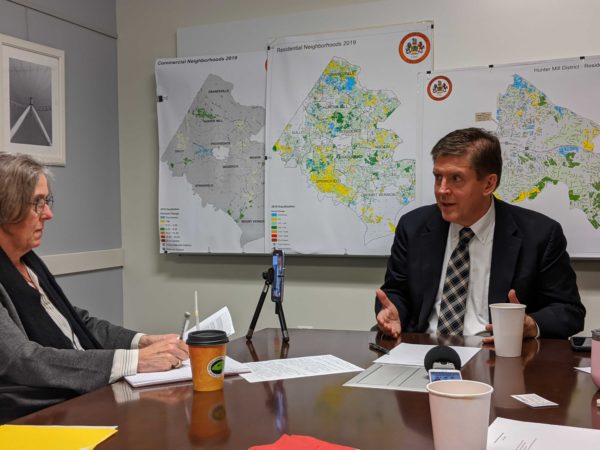
(Update at 10:41 p.m.: The town hall has been postponed due to uncertainty of available financial resources for the upcoming. budget).
An upcoming town hall meeting on Fairfax County Executive Bryan Hill’s budget proposal will take place online.
Instead of conducting the town hall on March 30 in Reston, Hunter Mill District Supervisor Walter Alcorn says the meeting will take place on his Facebook page this Saturday (March 21) from 10-11 a.m. The meeting will also air on Channel 16 and be live-streamed online.
Alcorn said the shift was prompted by fears of the spread of the novel coronavirus.
Residents can send questions on the budget to [email protected] with the subject “Town Hall Question.”
Hill is seeking to increase the county’s real estate tax by three cents.
One cent of the proposed tax, which increases the annual tax bill by roughly $346, will be earmarked for affordable housing initiatives. The remaining two-cent increase will go toward the general fund and other board priorities.
 This is an opinion column by Del. Ken Plum (D), who represents Reston in Virginia’s House of Delegates. It does not reflect the opinion of Reston Now.
This is an opinion column by Del. Ken Plum (D), who represents Reston in Virginia’s House of Delegates. It does not reflect the opinion of Reston Now.
In contrast to the federal government’s method of budgeting, the budget for the Commonwealth of Virginia is more than balanced. The state Constitution prohibits the borrowing of money for operations, and it requires a “rainy day fund” of reserve monies that can be drawn upon in an economic downturn. That is in part why the state has a perfect AAA bond rating giving it the best terms when monies are borrowed for capital projects.
Both the House and the Senate have completed work on their versions of the budget that was proposed by Governor Ralph Northam earlier this year. The two budgets will be reconciled in a conference committee that will resolve differences between the two. Total spending for the biennium will be about $48 billion in general funds raised through taxes. Individual and corporate income taxes provide three quarters of the revenue with sales tax providing about seventeen percent and additional smaller taxes making up the rest. General funds coming from taxes make up about 36 percent of total revenue. Non-general funds that consist of fees such as motor vehicle and gas taxes, college tuition, federal grants and other fees make up 64 percent of the budget.
Noteworthy features of the House and Senate budgets that are being reconciled and are subject to change before a final budget is adopted include a much needed increase in rates for personal care providers in Medicaid programs, an increase in developmental waiver disability slots by 1,135 in the Governor’s budget to 1,635 in the Senate version of the budget. While the increase will help, the number of persons on the waiting list still number in the thousands. The Governor and the House budgeted for 630 supportive housing slots for persons with serious mental illness while the Senate provided 1,630. Budget language provides for the establishment of a state-based exchange for health insurance.
The budgets of both houses provided for teacher raises as did the Governor’s budget. The amount differs in each with an expected three to four percent over the biennium. The ratio of counselors to students in the public schools will be improved. The Governor proposed a ratio of one counselor per 250 students. The House ratio is 325 and the Senate’s is 300. Likewise, the ratio of teachers for English learners will be improved. A major point of contention among the Governor’s and the House and Senate budgets is that only the House has proposed to restore the cost to compete funding for Northern Virginia schools because of the high cost of living in the region. The average per pupil direct aid for public school students ranges from $6,206 in the Governor’s budget to $6,297 in the House budget.
A major emphasis in the budget is an increased investment in preschool education that was championed by the First Lady. The Governor’s “Get skilled, Get a job, Give back” (G3) funding to provide tuition assistance to low- to moderate-income students who meet certain criteria is receiving significant funding. The Housing Trust Fund will receive a much-needed infusion of cash proposed in all the budgets.
File photo
The Herndon Town Council wants community members to provide feedback on the proposed budget at its fourth annual roundtable event later this month.
People with ideas for the fiscal year 2021 budget are invited to gather at the Herndon Municipal Center (777 Lynn Street) on Saturday (Feb. 29) from 9-11 a.m., according to the town’s website.
The budget must be adopted by June 20, according to a press release, which added that the budget will include upcoming programs, ideas for the town and community priorities.
“This is a chance for council members and citizens to engage in an informal way, outside of the public hearing forum,” the press release said.
Anyone with specific questions can email the town manager.
Photo via Herndon Town Council/Facebook
Early next week, Town of Herndon residents have the chance to share their opinions on the upcoming budget for the Fiscal Year 2021.
The public hearing will take place on Tuesday (Feb. 11) at 7 p.m. at the Mary Ingram Council Chambers (765 Lynn Street). Residents can speak their minds on matters regarding programs and services that the budget supports, according to a press release.
“As we consider resource allocation for the next fiscal year, we encourage citizens to share with us their views on programs and services that are most important to them,” Lisa Merkel, the town’s mayor, said.
Anyone who cannot attend in person may also submit feedback online.
A draft of the budget is expected to be delivered to the town council by April 1, according to the press release, which added other public hearings will be held on April 14 and 28.
Image via Town of Herndon
The Reston Association is set to hold a final public hearing for the Reston 2020-2021 budget next week.
The meeting will take place at RA Head Quarters (12001 Sunrise Valley Drive) beginning at 6:30 p.m. next Thursday (Nov. 21) and will be a chance for community members to share their concerns and grievances with the RA Board of Directors before they vote on the budget.
In 2020, Reston is expected to roughly raise $19 million in revenue with the operating budget, and operating costs are only expected to add up to $16 million, leaving a $3 million surplus, according to RA documents.
“Through these meetings, the board identifies revenues and expenses that should be added or eliminated based on the association’s strategic goals,” according to the RA website.
Photo via Reston Association
Reston Association’s Board of Directors will discuss the 2020-2021 budget at a special meeting tonight (Thursday).
The board is considering a five percent increase in member assessments for next year — amounting to roughly $728 per year.
Agenda materials have not been released yet. In response to questions from Reston Now about staff compensation and the future of RA’s pools, a spokesperson for RA said topics related to staff compensation would be addressed at the meeting.
Agenda materials have not been released yet, but the draft agenda covers the following topics:
- Staff’s compensation philosophy
- Findings of a staff compensation report
- Sponsorship revenue plans and assumption
- Existing programs and activities
- Activities that will not happen in 2020
- Ways to modify RA’s current assessment
The meeting starts at 6:30 p.m. at RA’s headquarters.
Photo via YouTube
Fairfax County officials want to take a closer look at the costs linked to adding body worn cameras to the county’s police department.
After studies observing the impact of police officers wearing body cameras while on duty, several members on the Board of Supervisors came out in support of the new proposal draft. As body worn cameras get closer to receiving the board’s approval, two supervisors want more information to determine the fiscal impact of the project.
Springfield District Supervisor Pat Herrity kicked off the discussion of the body worn cameras at the Public Safety Committee meeting Tuesday (Sept. 17) by asking what the fiscal impact would be.
The program would cost about $6.2 million by fiscal year 2022, Deputy County Executive for Public Safety Dave Rohrer told the board.
“That includes the Commonwealth Department of Information Technology, the police officers, the cameras, the storage and equipment,” Rohrer said. “It’s an all-in number.”
Braddock District Supervisor John Cook said that if Board of Supervisors approves the action items on the body worn cameras at the meeting next Tuesday (Sept. 24), he will request a report on how it could affect the budget for the Public Defenders’ Office.
Cook noted that the presentation about the pilot program included information about costs for the Office of the Commonwealth’s Attorney.
Photo via Fairfax County Police Department
Several Reston Association members spoke in favor of Lake Thoreau pool — what they described as a community asset and a major draw for area neighborhoods — at a budget meeting on Wednesday (August 21).
During the special meeting between RA’s fiscal committee and Board of Directors, residents pushed RA to keep the pool open. The future of the pool has been in question after emails by Board of Director Julie Bitzer circulated in the community. One email states that the pool is slated to be closed next year as the board considered whether or not to renovate the pool or find other uses for the space.
When asked about Bitzer’s emails and the future of the pool, RA’s spokesperson said the organization said speculation the pool was slated to close next year was rumor.
As part of its budget development process, RA’s board and staff are gathering data on pool utilization rates.
“There have been no formal conversations by the RA Board on pool closing for the 2020 season,” said Mike Leone, RA’s director of communications, marketing and member services, in an August 14 statement.
Leone added that RA is conducting a review of all amenities, facilities and programs as part of budget deliberations in order to ensure “RA is offering members the best services and value for their annual assessment.”
At the meeting, RA members said the pool is a significant community resources that they hope will stay. Others said contradictory information about the pool has created confusion in the community.
“I am just living to think that I found out by rumors that the pool is going to close,” said Susanne Joyner, a Cutwater Court resident. “What is the [ulterior] motive to this?”
The board will formally adopt the 2020-2021 budget in November.
Photo via vantagehill/Flickr
Reston Association’s Board of Directors and its fiscal committee will meet later this month to discuss the first draft of the 2020-2021 budget.
The meeting, which is open to the public, is set for August 21 at RA headquarters (12000 Sunrise Valley Drive) at 6:30 p.m.
The budget process kicked off on May 23 when the board adopted the budget development calendar.
Later this month, RA’s staff will incorporate changes made to the budget from the meeting to form the second draft of the budget.
A public hearing on the second draft is set for September 26. The budget will be formally approved on November 21.
Photo via Reston Association/YouTube


